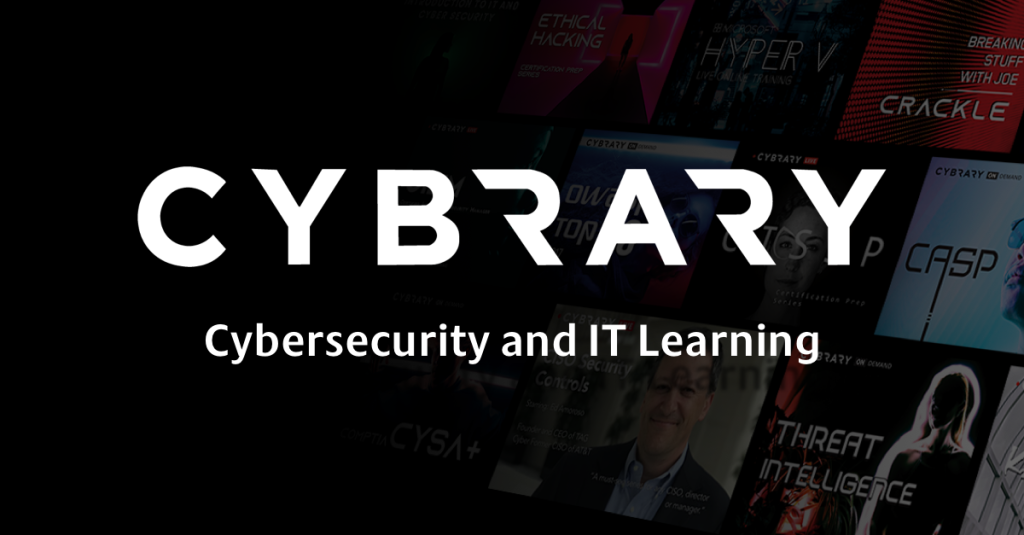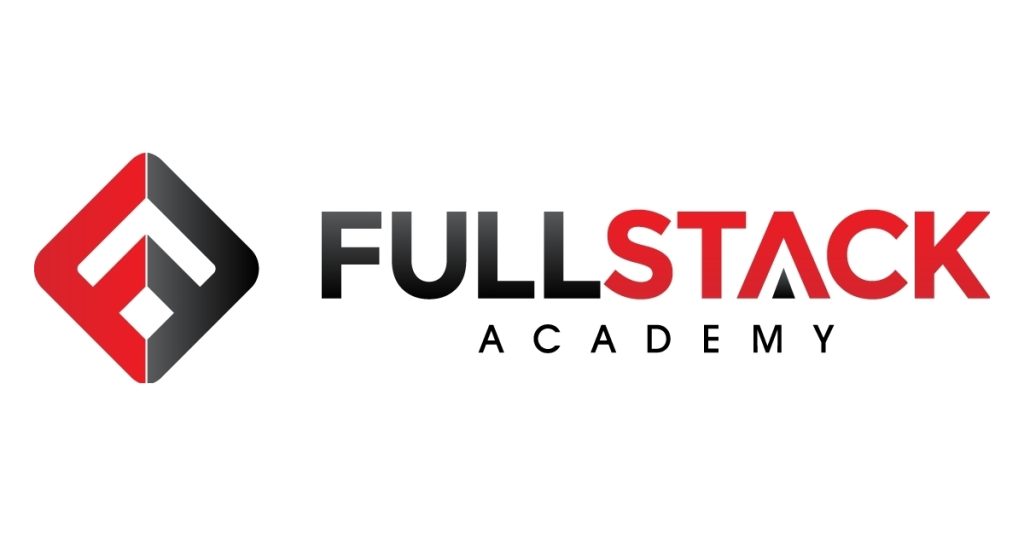We have ranked the best cybersecurity boot camp programs to inform prospective students of boot camp program options and what is involved in their programs.
Cyber Security is on the rise with job demand, and more colleges, universities, and private companies are offering cyber security boot camp training, on-campus and online, to educate the workforce.
All governments and all businesses of a certain size need cyber security forces to counteract hackers and other actors that want to victimize people and businesses online. The threats are constant. So the demand for Cyber Security professionals is on a steady rise over the coming years.
Also see our article The Highest Paying Trade Schools Jobs Without A Degree.
The Best Cybersecurity Bootcamp Programs
1. Southern Methodist University

The Cybersecurity Boot Camp is a 24-week program designed to help students gain proficiency in IT, networking, and modern information security. The program offers hands-on experience with popular tools such as Wireshark, Kali Linux, Metasploit, Nessus, and more. Students can learn skills that are applicable to various certifications, including CompTIA Security+, Network+, Linux+, Server+, Cloud+, and Certified Ethical Hacker (CEH).
The program offers convenient evening classes that allow students to advance their skill set, even if they are currently employed or in school. Additionally, students can benefit from comprehensive career services that can help them succeed in changing career paths or advancing in their current positions. The curriculum covers various topics, including networking, systems, cybersecurity, ethical hacking and penetration, cybersecurity careers, and programming and scripting.
Students gain skills in cybersecurity, such as packet analysis, Windows and Linux administration techniques, Windows and Linux Hardening, cybersecurity secure network design and architecture, risk management, cryptography, vulnerability assessment, identity and access management, cloud security, and digital forensics methods, penetration testing, and others.
By the end of the program, graduates should be able to conduct vulnerability assessments of computer networks, configure machines on a virtual network, investigate cloud security risks, identify suspicious user behavior, and automate security and operating systems tasks using Bash scripts.
2. University of Texas at Austin

The Cybersecurity Boot Camp at UT Austin is offered online.
Learning Cybersecurity in just 24 weeks online has never been more important as the world's data grows at an unprecedented rate. With 90 percent of the world's data having been created in just the past two years, it's critical that professionals are equipped with the knowledge and tools to protect sensitive information from cyber threats.
The Cybersecurity Boot Camp at UT Austin offers a part-time program that takes a multidisciplinary approach to teaching IT, networking, and modern information security. Over 24 intensive weeks, students will gain hands-on experience with popular tools like Wireshark, Kali Linux, Metasploit, Nessus, and more.
The program offers a comprehensive set of career services to help students advance in their current position or switch to a cybersecurity job path. Students will learn skills applicable to certifications such as CompTIA Security+, Network+, Linux+, Server+, Cloud+, and Certified Ethical Hacker (CEH). Evening classes make it easy to advance skills, even if the student is currently employed or in school.
In this program, students will get training in networking, systems, web technologies, databases, and defensive and offensive cybersecurity. The curriculum covers foundational skills in cyber and network security, including secure network design and architecture, risk management, cryptography, vulnerability assessment, identity and access management, cloud security, and ethical hacking and penetration. Students learn from skilled instructors and collaborate with peers to gain real-world experience.
Graduates are prepared to conduct vulnerability assessments, configure machines on a virtual network, identify suspicious patterns of user behavior, and write Bash scripts to automate security and operating systems tasks.
The academic team adjusts the material covered to market demand, enabling students to be current with industry trends and best practices.
3. University of California Berkeley - Berkeley Extension

Prospective students can gain proficiency in IT, networking, and modern information security by joining the challenging part-time online program offered by Berkeley Cybersecurity Boot Camp.
The program covers a multidisciplinary approach over 24 weeks, during which students can learn a host of popular tools like Wireshark, Kali Linux, Metasploit, Nessus, and more.
They can also learn skills that apply to certifications such as CompTIA Security+, Network+, Linux+, Server+, Cloud+, and Certified Ethical Hacker (CEH).
Students can participate in evening classes and advance their skillset while working or studying.
The curriculum focuses on networking, systems, web technologies, databases, and defensive and offensive cybersecurity. Skilled instructors teach students methods, techniques, and best practices for accurately conveying the severity of security breach and the risks facing an organization’s security posture.
Through hands-on application, students collaborate with their peers and gain real-world experience. The program curriculum dives into foundational skills for cyber and network security, including packet analysis, Wireshark systems, Windows and Linux administration techniques, cryptography, secure network design and architecture, vulnerability assessment incident response, identity and access management, cloud security, ethical hacking and penetration, and more.
Upon completion of the program, students will know how to conduct vulnerability assessments, configure machines on a virtual network, identify suspicious patterns of user behavior, and write advanced Bash scripts.
4. Texas A&M International University

The Cybersecurity Bootcamp offered online has been specifically created to equip upcoming cybersecurity experts with the ability to confront complex and significant risks. Regardless of any prior background, all that is required is a commitment to acquire new knowledge.
Upon finishing the program, graduates will have cybersecurity abilities and information useful for a cyber security career track, as well as attain the most desired certifications.
This Cybersecurity Bootcamp covers the following areas:
- Essential principles of prominent communication protocols, router/switch configuration, and implementation of TCP/IP
- Basic aspects of data security and auditing
- Techniques for recognizing, evaluating, and minimizing security risks
- Strategies that malicious hackers employ to launch attacks on systems, and ways to counter such attacks.
- The intricacies involved in linking diverse components to build complex networks.
- The roles and competencies of a cybersecurity analyst.
How the Cybersecurity Bootcamp works:
- Students will receive interactive and self-paced instruction for six months, requiring 15 to 25 hours of study per week to complete the curriculum.
- Students will be prepared to pass one of the following certifications: CompTIA A+, Network+, Security+, CySa+, Pentest+, or EC-Council CEH.
- Students have access to five one-hour online coaching sessions with their instructor.
- Students will complete multiple course projects and a final capstone project to help create a professional-grade portfolio, which can be showcased to prospective employers.
5. Cybrary

Prospective students can confidently initiate their journey in cybersecurity with hand-picked courses that teach essential principles for job skills.
Certification is key with exam preparation content from high-level instructors, Cybrary empowers students to pass certification exams on the first time.
Practice tests are also available to help ensure exam success.
Become proficient in practical skills and stay up-to-date with the latest threats and vulnerabilities to better prepare for real-world security incidents and become cybersecurity professionals.
Students participate in Threat Actor Campaigns and CVE Series to learn how to detect and reduce threats. Students are tested with gamified Cybrary Challenges that simulate actual attacks.
Cybrary for Groups:
Organizations can detect and mitigate cybersecurity risks to their business partners and safeguard their assets with their teams who aspire to be serious security professionals.
Companies can request a demo of Cybrary’s comprehensive suite of learning activities and management tools, including hands-on practice labs, skill and hiring assessments, LMS integrations, timely threat-informed courses, customized guided paths, framework-aligned content, and more.
Live Certification Prep Training for Teams:
In addition to Cybrary's on-demand certification prep content, Cybrary Live offers students the opportunity to interact with expert instructors in a boot camp-style engaging virtual environment classroom setting.
6. Full Stack Academy

If you're looking to fight cybercrime and transform your career, Fullstack Academy's Cybersecurity Bootcamp can equip you with the skills you need in just 12 to 26 weeks. As one of the longest-running and most successful bootcamps in the nation, Fullstack Academy uses a teaching method that sets graduates up for success in their first job and beyond.
Whether you're a beginner or an experienced tech professional, Fullstack Academy's Cybersecurity Bootcamp can help you achieve your unique educational and career goals. Through the program, you'll gain real-world cybersecurity skills using popular tools like Kali Linux, Python, and Wireshark, all taught by industry-leading experts who are passionate about training the next generation of cyber professionals.
After completing the program, graduates have access to a powerful alumni network that can help open doors to potentially lucrative jobs. Plus, Fullstack Academy's experienced Career Success Team will provide career support, helping land cybersecurity jobs at top companies like Accenture, the IRS, and the Center for Internet Security.
7. Flatiron Academy

Flatiron offers an online or in person Cybersecurity Engineering program, for full or part time students. The part time option is online only. The full time schedule is 8 hours a day, each day of the week, and lasts for 15 weeks.
The part time schedule is 40 weeks in duration, as allows working at your own pace. The cost is $16,900. By learning coding, students will be able to create Python scripts and automate the process of analyzing log files from a variety of network devices.
Benefits of Cyber Security Bootcamps
Students can gain in-depth knowledge of cyber security from knowledgeable industry professionals in cyber security boot camps. Cyber security is an ever-changing field, and there's always something new to learn. Bootcamp students learn skills applicable to cybersecurity jobs. Some cybersecurity bootcamps give students the opportunity to explore different areas of cyber security and gain expertise in one or more specific areas.
Learn from Cybersecurity industry experts
Students are taught by instructors who have years of experience working in the field, so they can share their knowledge directly. This means that when you graduate from a cyber security bootcamp, your skills will be up-to-date with current trends in this rapidly growing cybersecurity industry.
Cybersecurity professionals and job prospects
If your goal is employment after graduation, then attending a cyber security bootcamp is an excellent way to gain professional development and increase your chances at getting hired, as well as landing higher paying jobs than those without any formal training or certification.
See Also: Top Online Cybersecurity and Information Assurance Master’s Degrees
What to Look for in a Cyber Security Bootcamp
First, make sure the program is accredited by an organization like the International Assembly for Collegiate Business Education (IACBE). This means that it meets certain standards and has been reviewed by experts in the field.
Second, take a look at what kind of curriculum they offer. You want one that covers everything from network security to data sharing. You should also ask about cost. Some programs charge per class session while others charge by semester or in yearlong packages.
Finally, think about how long your desired program lasts--some last only four months while others last longer than a year.
There are also online Associate's degrees in Cybersecurity.
How to Choose The Best Cybersecurity Boot Camp
Choosing the best cybersecurity bootcamp can be a daunting undertaking. First decide do you want to attend online or in person? That will help narrow down your choices. We have made this helpful guide for students in choosing the best options.
- Understand your goals. Before you start researching cyber security bootcamps, it's important that you have a clear understanding of why this career path is appealing to you and what kind of impact it will make on the world around us.
- Research each cybersecurity bootcamp. Once you've decided that cyber security is for you, it's time to do some research about which schools offer programs in this field--and what those programs entail. You'll want to look at things like tuition costs, location options (online vs traditional classroom), course lengths and more when deciding which school is right for your needs.
- Consider cost and time commitment. While most bootcamps are fairly affordable compared with traditional four-year university degrees or graduate degrees, they can still take up quite a bit of time during each week of class - which means making sure there aren't any conflicts between work hours/family obligations/etc before signing up.
How to Prepare for a Cyber Security Bootcamp
Before you start, it's important to understand what you want out of the experience. Do you want to get a job as a cyber security professional? If so, then there are some things that will help make this happen.
- First and foremost: research the cybersecurity bootcamp. You should know what kind of company it is and whether or not they have good reviews from past students and employers.
- Secondly, take some time to get familiar with basic coding concepts such as algorithms and data structures--it's not necessary for everyone but will definitely help if you decide to pursue more advanced courses later on.
- Finally, practice problem solving skills by tackling challenges like Project Euler or HackerRank problems.
How to Make the Most of Cybersecurity Boot Camps
- Set achievable goals
- Practice and review
- Take advantage of networking opportunities
- Get involved in the community
What to Do After Completing a Cyber Security Bootcamp

After you complete a cyber security bootcamp, it's important to take advantage of job search resources. These include:
- The National Cybersecurity Workforce Framework (NCWF)
- The National Initiative for Cybersecurity Careers and Studies (NICCS)
- The National Center for Women & Information Technology (NCWIT) - Includes tips on how women can get started with their own cybersecurity education program at home before enrolling at an accredited school or college campus near them later down the line if they wish.
Online Cybersecurity Boot Camp
Should you attend online or in person? Deciding to enroll in an online program opens up all of the online cybersecurity programs available around the nation, without concerns of being located near the cybersecurity bootcamp. There can also be flexible options that allow you to work on your own time.
But it can take self discipline to manage your own schedule and work at your own pace. The online or in person question can only really be answered by you and your practical skills. On campus may offer more direct hands on training. Both prepare students in the same cybersecurity proficiencies, including vulnerability assessment, malware analysis, digital forensics, and other cybersecurity skills.
Why Apply to a Cybersecurity Program?
A cybersecurity bootcamp can provide the skills for graduates to become serious security professionals. The alternative is to pursue a full college degree.
Analytics Programming and Scripting
Analytics programming and scripting in cybersecurity is all about using programming languages and scripting tools to analyze and interpret massive amounts of data, uncovering potential security threats and vulnerabilities before they become a major problem.
Some of the most commonly used languages and tools in cybersecurity analytics include Python, Perl, Ruby, and Bash, all of which can be used to develop automated tools and scripts for performing security-related tasks, extract and manipulate data from various sources, and perform statistical analysis and data visualization to identify patterns and anomalies in network traffic and system logs.
With analytics programming and scripting, cyber professionals can automate security processes, and sift through massive amounts of data like system logs and network traffic to identify anomalies, potential threats, and vulnerabilities.
By using this, organizations can proactively detect, prevent, and mitigate potential security threats before they can cause significant harm to the system or the business.
Is a Cybersecurity bootcamp worth it?
With employment in the cybersecurity sector expected to grow by 35% by 2031, according to the Bureau of Labor Statistics (BLS), now is the perfect time to enter this high-growth field. This means an additional 56,500 new network security (cybersecurity) careers. Cybersecurity professionals earn an average median salary of $102,600 per year (according to BLS).
The Jobs You Should Be Able to Perform

Cybersecurity professionals can perform certain roles as a general rule in the cybersecurity career field. These can include becoming a certified ethical hacker, providing defensive and offensive cybersecurity, network security, preventing cyber attacks and assessing cyber threats, penetration testing, and preventing future cyber attacks.
Bootcamp programs provide cybersecurity training of real world projects, to prepare students for insuring a given organization's security posture.
Get Hands-On Training and Real-World Experience
A cybersecurity professional learns hands-on training often in a degree program or in a cybersecurity bootcamp. Bootcamp graduates have gained experience in cybersecurity industry best practices.
This deep security knowledge can include hands on training in penetration testing, vulnerability assessment security operations, cyber and network security, and many other security threats.
How much do Cybersecurity bootcamps cost?
The cost of cyber security bootcamps can vary depending on the program and the institution offering it. Typically, bootcamps are intensive and immersive training programs that aim to teach students the practical skills they need to enter the cybersecurity industry quickly.
The cost of a cybersecurity bootcamp can range from a few thousand dollars to tens of thousands of dollars, depending on the length of the program and the level of expertise it provides. Some bootcamps offer financial aid or scholarships to help students offset the cost of the program.
It's important to research different bootcamps and compare their costs, curriculum, and outcomes to determine which program is the best fit for you. Additionally, some employers may offer to cover the cost of a bootcamp for their employees advance in their careers.
The Market for Cybersecurity Experts
The market for Cybersecurity professionals is currently expanding quickly.
According to the Bureau of Labor Statistics, employment of information security analysts is expected to grow 35% to 2031, much faster than the national average. Because of the increasing frequency and sophistication of cyber attacks, cybersecurity has become a top priority for many businesses and organizations.
Cybersecurity experts are in high demand across many industries, such as government, healthcare, finance, and technology.
Boot Camp Schedule
Common Challenges of Cyber Security Bootcamps:
- Keeping up with the pace. The pace of cybersecurity bootcamps can be intense, so you'll need to be prepared for that. You'll be learning new skills and concepts every day, which can be challenging if you're not used to it.
- Limited resources. Many cyber security bootcamps are only offered in certain cities or countries, so if yours isn't available where you live or work now, that could be a problem for future employers who want their employees trained locally. Additionally, some schools don't offer scholarships or financial aid options--or they do but only for certain groups (like women). So even though these programs are designed specifically so people from all backgrounds can attend them successfully, some may still feel out-of-reach financially due to lack of scholarships/financial aid opportunities at their school.
- Learning environment. A lot has been written about how stressful life at college can be; add onto this pressure from professors who expect students' best efforts every single day and then add another layer by being surrounded by peers who might not understand exactly why something needs doing differently than before.
More resources:
